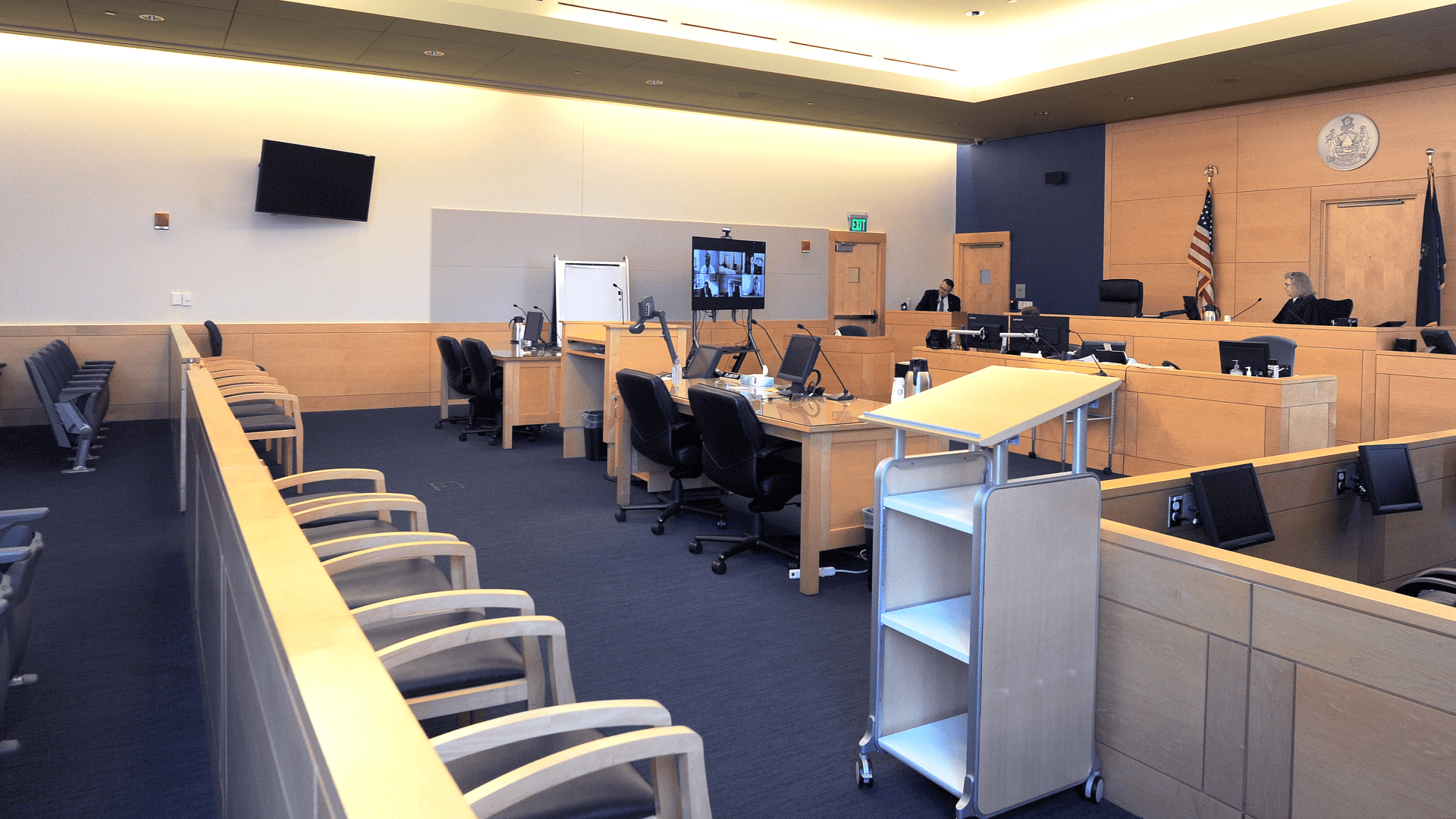Last August, Maine Supreme Judicial Court Chief Justice Valerie Stanfill penned a letter asking Maine’s largest law firms to provide attorneys for people who couldn’t afford them.
At the time, more than 100 cases lacked an attorney. In her letter, Stanfill said that figure represented a “crisis.”
In the months since, that number has risen dramatically. As of May 8, 833 criminal defense cases were awaiting an attorney, according to data from the Maine Administrative Office of the Courts.
Those cases represent 633 criminal defendants who have been denied their constitutional right to legal representation, according to a recent analysis from the Maine ACLU. (One person can have multiple cases against them).
Of that total, 144 people are imprisoned in Maine while they wait for an attorney, the ACLU said.
The report found that 373 defendants had been waiting for an attorney for more than 30 days. That’s more than a 310 percent increase since November in the number of people waiting that long.
While those figures are growing, a class action lawsuit alleging the state is denying criminal defendants’ constitutional rights is moving toward a trial. In 2022, the ACLU filed suit against the Maine Commission on Indigent Legal Services, the state agency responsible for securing legal representation for defendants who cannot afford their own attorneys, which has since been renamed the Maine Commission on Public Defense Services.
Superior Court Justice Michaela Murphy has twice refused to approve proposed settlements in the case, and set a trial date for June. The commission then appealed this decision.
On May 1, the Maine Supreme Judicial Court denied the appeal, sending the case back to Superior Court. On Monday, Murphy set the new deadline for discovery in the case for September 13.
Penobscot County is facing the worst attorney shortage. On May 8, 303 people in Penobscot County were waiting for an attorney, nearly half of the statewide total. The second highest is Cumberland County, which had roughly 174 people awaiting counsel, despite a population double that of Penobscot County.
Aroostook County had 51 defendants waiting for an attorney, lower than York County’s total of 79. But York County is home to more than three times the number of people as Aroostook.
Kennebec County had a relatively low 10 defendants awaiting attorneys. It is also home to Maine’s first public defender’s office, which opened late last year.
Unlike other states, which employ public defenders, Maine has historically relied on private lawyers to take criminal cases for indigent clients.
Last year, Gov. Janet Mills signed a bill into law enabling the state to hire public defenders and create the Kennebec office.
In March, Maine enacted a law authorizing a public defender’s office in Aroostook County and a second office that will serve both Piscataquis and Penobscot counties.
Former prosecutor Frayla Tarpinian became Kennebec County’s first District Defender in November. In late March, she told The Monitor she was “cautiously optimistic” about her office’s ability to ameliorate the defense crisis.
At that time, she had six full-time attorneys on staff, two paralegals and had recently hired a private investigator to help with cases.
Tarpinian said her office was prioritizing people in custody to prevent constitutional violations.
“It seems to have worked in Kennebec,” Tarpinian said. “It’s absolutely replicable elsewhere.”
But while the public defender’s offices are a welcome addition, some in the criminal defense bar argue that a big part of the problem is the number and types of cases prosecutors are sending to court.
“The state faces no consequences for continuing to bring charges without regard for the ability to staff them,” said attorney Robert Ruffner, founder and director of the Maine Indigent Defense Center, a firm whose lawyers work with low-income clients facing criminal charges.
“It’s not as though there’s an infinite number of attorneys to satisfy the state’s hunger for just dumping everything into the criminal system.”







